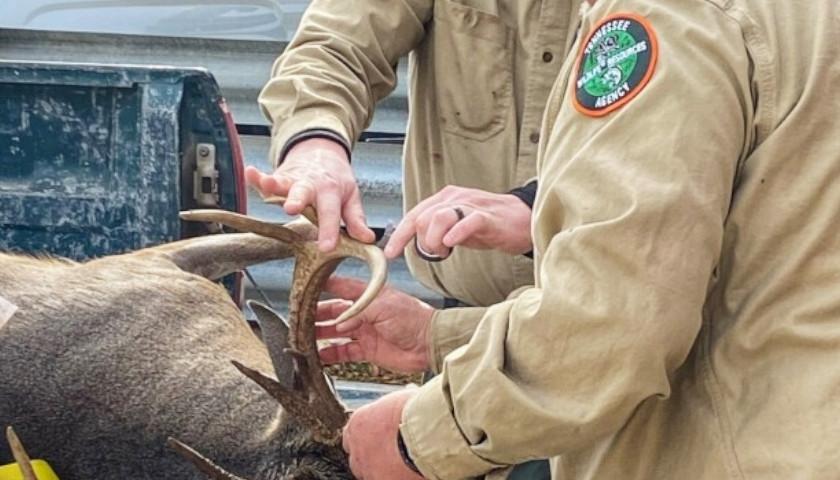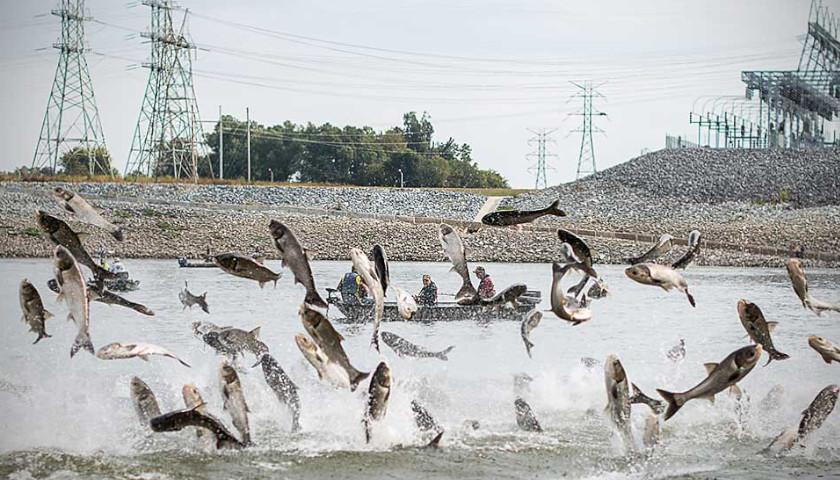Speaker-Elect Glen Casada will convene an open forum this week to discuss the invasive Asian carp problem in Tennessee waters, according to a press release.
The forum, scheduled for Thursday, December 20 at 12:45 p.m., will include several current and newly elected State Representatives who will attend the forum along with current TWRA Commission Chair Kurt Holbert as well as other TWRA officials and experts.
According to the Tennessee Wildlife Resource Agency (TWRA), there are four species of Asian carp, originating in China, now in Tennessee and throughout the United States. The carp, brought to the U.S. for aquaculture purposes as far back as the 1970s, escaped into the delta areas of the Mississippi River during extreme floods in the late 80’s and early 90’s.
While all four species of Asian carp can impact fish and other aquatic life in a number of ways, TWRAs most immediate concern is for the safety of boaters. Some species of carp are known for jumping when encountered by a boat. When they jump, the carp colliding with a passenger can cause serious injury.
A number and variety of efforts are underway to control the spread not only in Tennessee, but nationwide. While controlling the movement is important, where the Asian carp are already established their numbers need to be reduced.
It is a widely held thought that commercial fishing is the most practical method to reduce the quantity of carp, with the capability of removing millions of pounds of carp annually.
In light of that, Speaker Casada is said to be “especially pleased that representatives from Tennessee’s commercial and sport fishing industry will be attending.”
The industry experts are also expected to provide “much-needed real-world experiences they face dealing with the Asian Carp on Tennessee’s Rivers on a daily basis,” the press release said.
In a cooperative effort to battle the Asian carp, the Tennessee General Assembly formed an Asian Carp Task Force. At the Task Force recommendation, in 2017 TWRA funded a $75,000 grant to the Paris Henry County Industrial Committee to develop local commercial fishing business for carp.
According to its website on the matter, another TWRA plan is in the draft stages to provide incentives for commercial fishing and wholesale buyers.
Reauthorization of the Asian Carp Task Force will likely be discussed as well as possible legislative solutions to assist Tennessee’s commercial fishing industry attack the invasive species, the press release stated.
Aware of the seriousness of the problem, Casada says he wants to keep the lines of communication open and is looking forward to hearing from all the various stakeholders on current issues and new developments.
Casada scheduled the forum prior to the start of the legislative session of the 111th Tennessee General Assembly “to emphasize his desire to keep this problem on a front burner for wildlife management,” the press release noted.
Coming out early on the issue may demonstrate to those concerned about the future Speaker, Lt. Governor and Governor all coming from Williamson County that issues affecting other areas or the state as a whole will not be overlooked.
Newly-elected State Representative for the 75th District, Bruce Griffey (R-Paris), was praised by Casada, who said, “I really appreciate Representative Bruce Griffey for bringing this very important issue to the forefront and to my attention. I look forward to working with him on solving this problem.”
The press release advised that Inquiries be directed to Scott Kyle with Representative Bruce Griffey’s office at 615-741-6804.
– – –
Photo “Glen Casada” by Glen Casada.






[…] sat down with The Tennessee Star to give an update on the open forum held Thursday about the Asian carp invasion of Tennessee waters that has significantly impacted his district covering Henry, Benton and Stewart […]
Oh Wow man…That sound like like like urgent. doip!
But not worried about illegal aliens invading the state…
Wonder if any meetings are scheduled to address illegal immigration and the cost to city, county, & state taxpayers, including not receiving services legal citizens need and tax increases to those Tennesseans who pay most of the taxes?